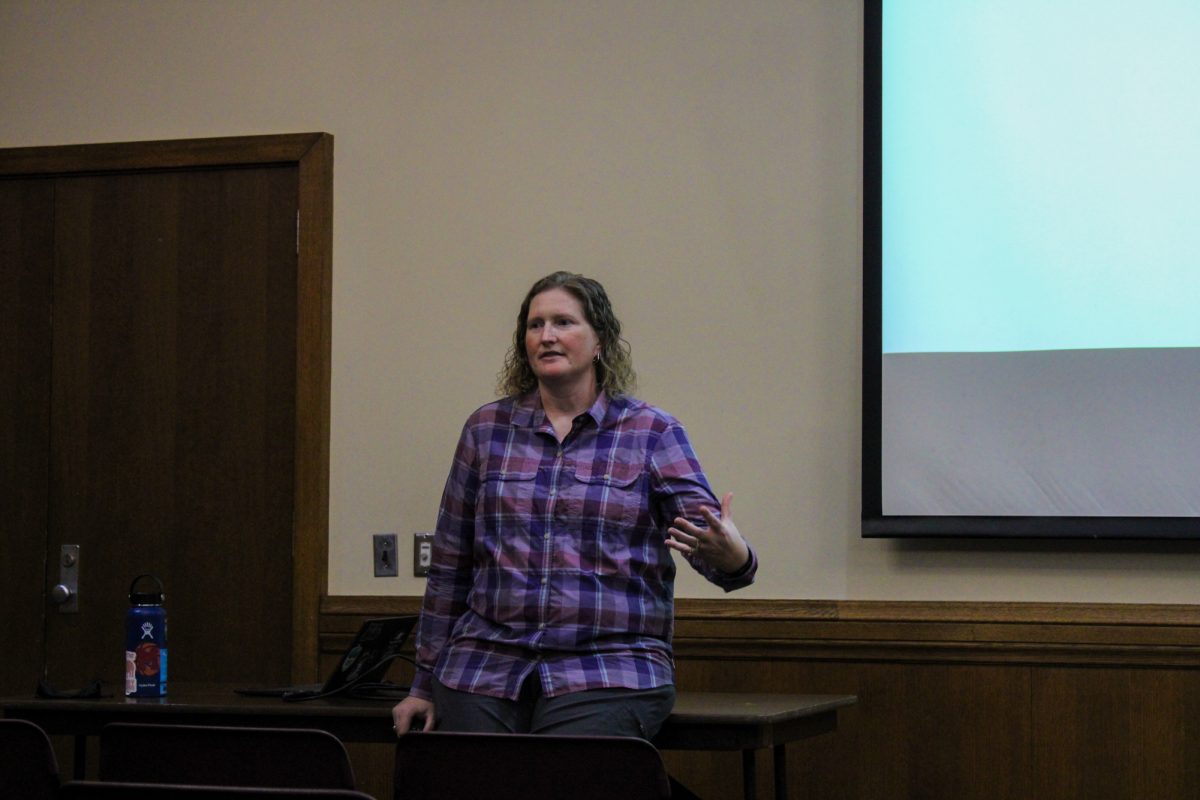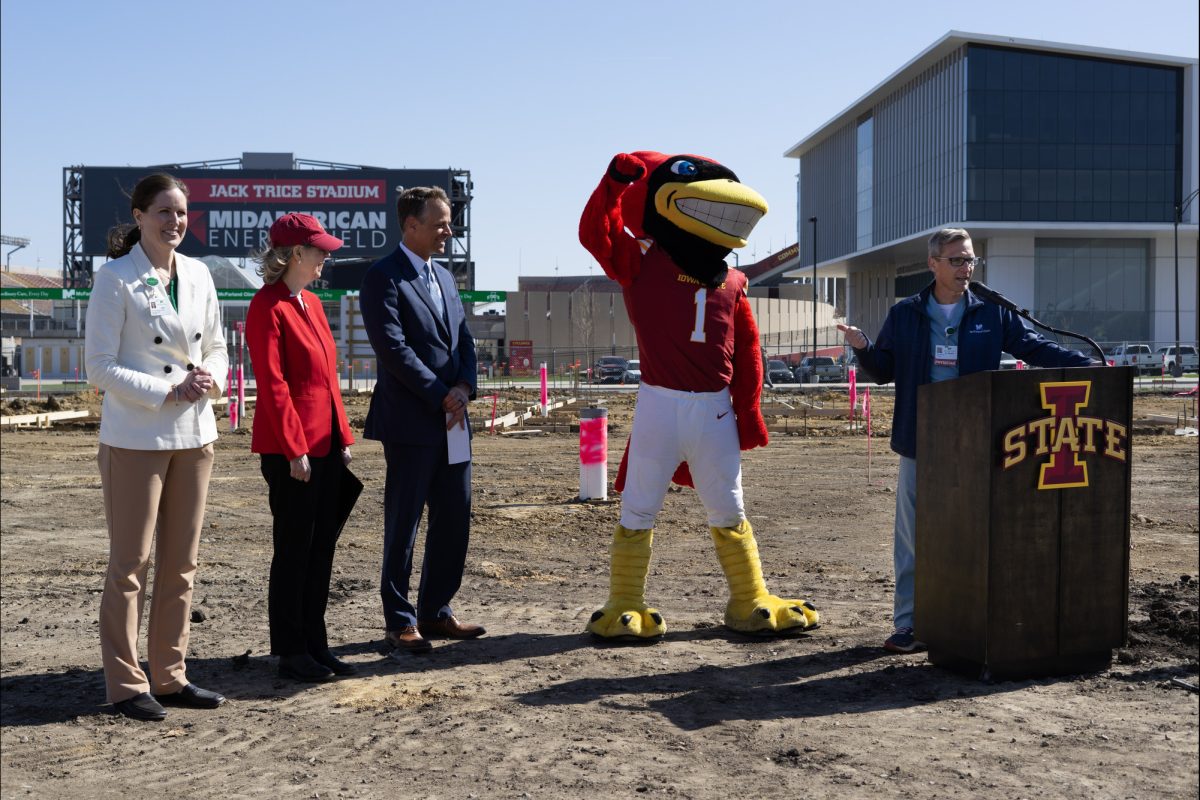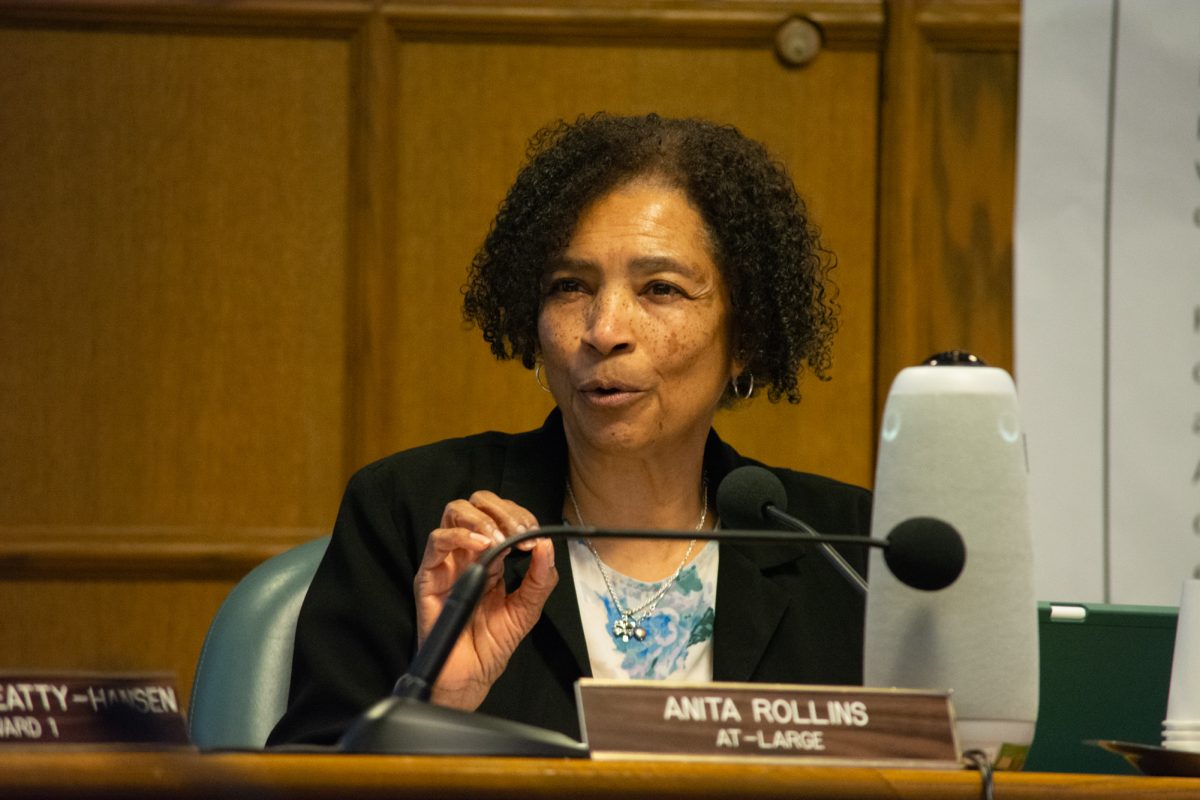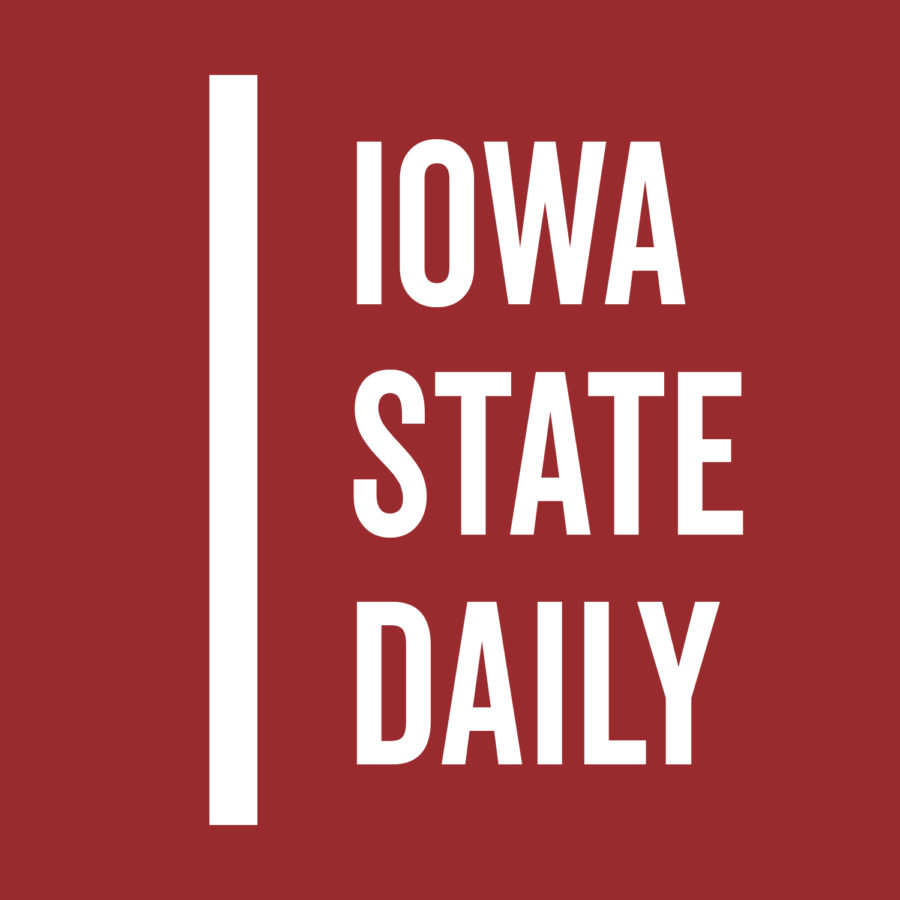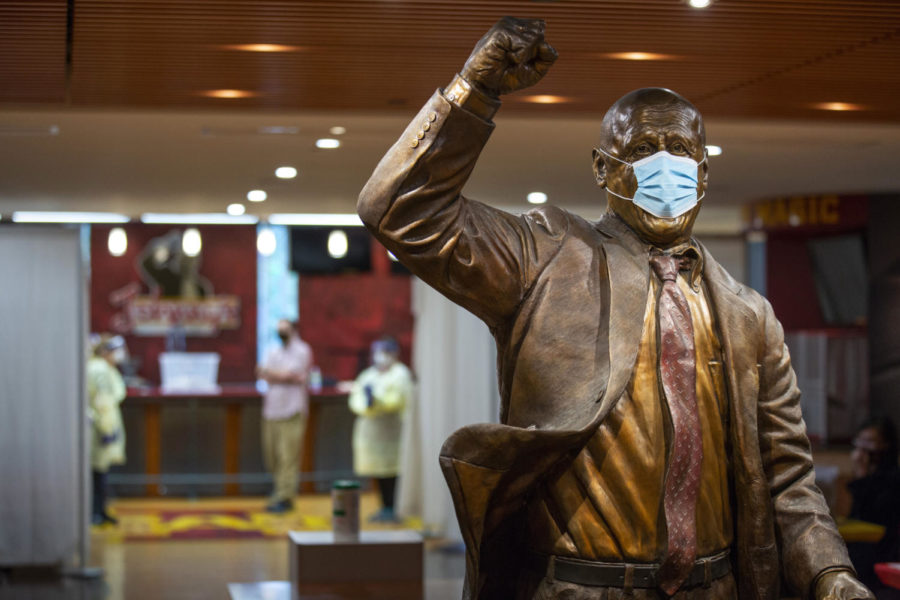Professors craft their skills at Broader Impact (BI) Identity workshop, held in the Memorial Union on Wednesday.
The event included a workshop for researchers, specifically for graduate students and all professors. The workshop discussed topics such as research identity and impact identity and how to connect it to their research.
The workshop was also a collaborative event between the speaker and the audience, gaining feedback and knowledge.
Megan Heitmann, a research administrator, led the workshop.
“I wanted people today… to look at themselves and their research as a whole, and to start working on activities in thinking about how science impacts those outside of themselves or their lab and do it in a way that seems natural,” Heitmann said.
The idea of a “broader impact identity” is supported by the National Science Foundation (NSF). NSF provides funding to scientists and engineers to conduct research that drives discovery and innovation. The agency also expects this research to have broader impacts, meaning it should offer societal benefits and contribute to achieving specific, desired outcomes for society.
The workshop started first by discussing what one’s research identity is and how it relates to people.
“Everyone who does research has a research identity,” Heitmann said. “It’s one of the many hats you wear, right?”
A “research identity” refers to how a researcher views themselves within their field, including their beliefs, values, research interests, methodologies and the body of work they generate.
“Research identity shapes who you will be professionally,” Heitmann said “It changes the collaborations you have with others, what professional societies you might join and it shapes what journals you probably publish in… It shapes that professional side of your life and it’s also very dynamic.”
A significant portion of the workshop gave the audience the opportunity to engage with questions related to their own research and broader impact initiatives. Meanwhile, Heitmann facilitated in-depth responses and offered personalized feedback.
“It’s really important that we as researchers can communicate to society what we are doing and how it’s important,” Bradley Miller, a professor in the agronomy department, said.
Heitmann outlined what foundations seek out when considering funding for research, highlighting research identity and broader impacts as key factors.
“So we are thinking about what is that broader impact of our work, and we want that to be part of our identity as a researcher,” Heitmann said. “So then it becomes really inherent in how it fits with our research and how it fits with us as people.”
“Overall, today was really important for researchers,” Miller said. “I learned more about the details of communication, so we get practice on what we do on a regular basis, but sometimes we don’t quite hit the key points that resonate the most with the audiences.”
“Broader impact is mainly looking at the societal impacts of research and really what the NSF is looking for,” Heitmann said. “We are, today, trying to help our researchers at Iowa State to find support for them and what those impacts of their research are.”


